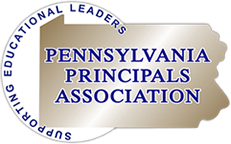PA Principals Association Legislative Update
April 13, 2020
As Pennsylvania continues to struggle with the new reality of COVID-19, changes continue to be thrown at education. With the announcement last week that schools will be closed for the rest of the academic year, it has moved schools into overtime in their ongoing efforts to provide continuity of education and to address the many questions and challenges that process brings. While PDE is continually cranking out guidance to assist schools in their response to this challenge, it probably isn’t coming as fast as would be most ideal, but school leaders across the state continue to do amazing work in responding to the needs of their students, staff and communities.
If you haven’t already done so, bookmark PDE’s COVID-19 resources page and check back daily for updates and messages. We anticipate additional guidance this week on several fronts.
COVID-19 and the 20-21 State Budget
The challenges created by COVID-19 have, understandably, resulted in chaos at all levels of government operation. And while we are most often focused on the immediate implications for education, it’s important to note that all sectors of the commonwealth are struggling, and it’s likely to come to a head in Harrisburg as discussions regarding a 20-21 state budget begin.
The Independent Fiscal Office issued a report last Wednesday (click here to access the report), which provided two scenarios for the state’s revenue picture given the length of the closures. The first scenario estimated the COVID-19 impact on state revenues if the statewide shut-down lasted through April; the second scenario estimated the revenue impact if the shut-down lasted through much of May. While it seems that the second scenario is more likely at this point (or potentially a third scenario with a longer shut-down timeframe), it indicates that the COVID-19 impacts on state revenue are significant—to the tune of roughly $4 billion (this includes consideration of most CARES Act stimulus funds).
The scope of this shortfall will complicate already challenging 20-21 budget discussions, and while the state continues to work to understand how the state’s share of federal CARES Act stimulus funds can be used, the bottom line is that the 20-21 state budget will be bad. And while school districts will receive CARES Act funds, given the scope of the state’s economic challenges, it might be too optimistic to assume that the federal funds would offset any reductions in state funding.
Add to this the complexities of just how to pass a 20-21 state budget with such uncertainty. The General Assembly continues to discuss the possibility of a 6-month budget, allowing them to revisit the budget issue this fall when more is known, some time for recovery may have occurred and it will be known whether a second federal stimulus package will be passed.
Another layer of challenge to add to the equation is the uncertainty with respect to the local revenue school districts can count on for 20-21. Based on what happened in 2008, school districts are bracing for declines in property tax collection, increases in delinquencies and declines in EIT, realty transfer tax and all other local taxes. Make no mistake, 20-21 is going to be an unprecedented budget year. Stay tuned for a lot more.
Last Week in Harrisburg…
While the state’s economic outlook continues to come into focus, the General Assembly continues to work to address some COVID-19-related issues. Last week, the House had a fire-drill on language that would have mandated a school district property tax freeze for 20-21; however, while the issue was caucused, it was not brought forward for a vote (at least, not yet).
They did, however, amend and tee up for a full House vote this week Senate Bill 613. The bill was amended to include language that requires the state to create a COVID-19 mitigation plan for businesses, such that all businesses that follow the guidelines would be permitted to operate in the commonwealth despite the shut-down. Governor Wolf has expressed opposition to this legislation.
Additionally, the Senate amended Senate Bill 841 and sent it to the House for concurrence. The bill addresses several issues, including providing for a Health Care Cost Containment Council, providing local governments (excluding school districts) with flexibility on the timeframes for the discount rate or to waive the penalty on the payment of property taxes, making adjustments for business firms contributing to the EITC program and providing the authority for school entities to renegotiate any contract during the period of closure (focused on the personnel and fixed costs of the contractor), allowing for the payment of the contractor if the contractor can show that it has maintained the same complement it had as of March 13. This provision does NOT require the renegotiation of any contract nor the payment of any contractor.
This Week in Harrisburg…
The House returns to Harrisburg on Monday, April 13 for non-voting session, with Tuesday, April 14 scheduled to be a voting session day. Currently, there is a bit of a mess in the House. While they voted on a rule change that allowed for remote voting during this period of heightened need for social distancing, House leadership has indicated that they expect a quorum of members (102 House members) to be physically present in Harrisburg on Tuesday, making the remote voting process irrelevant.
This has created a bit of a controversy, largely along party lines, as many are concerned about the need to social distance during this time and the effective inability to vote if they are not present in Harrisburg. The House is expected to consider both Senate Bill 613 and Senate Bill 841 (both discussed above) this week. We’ll see what happens, but some fireworks are likely…
There will be a lot more to come…so stay tuned!
